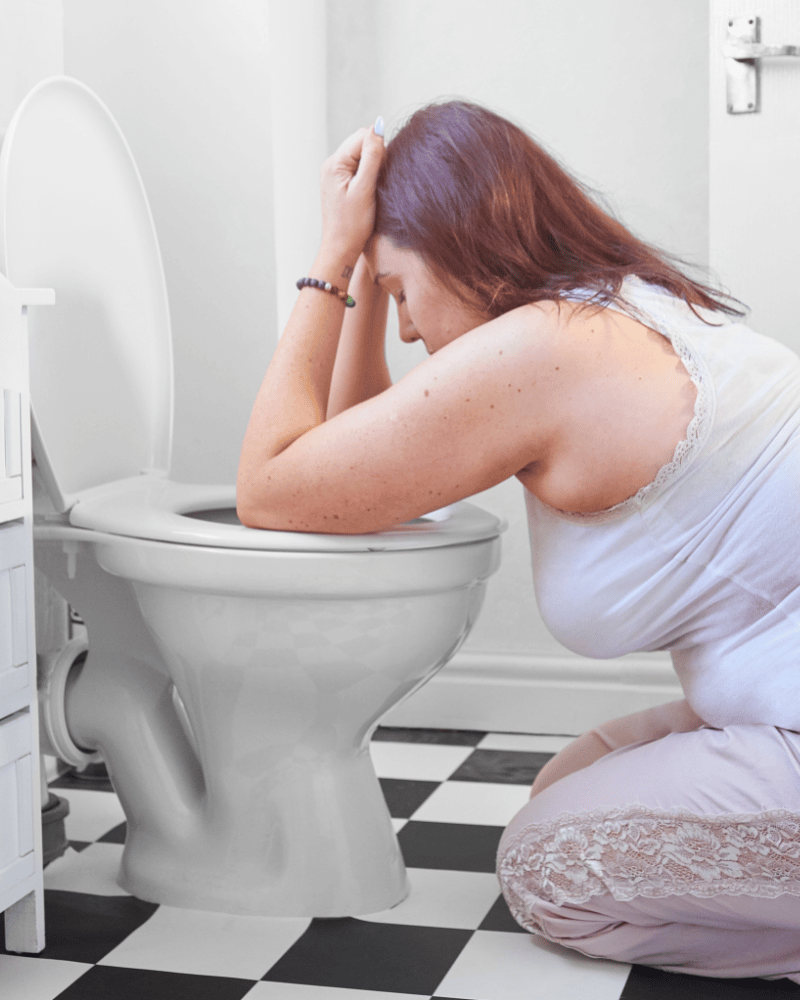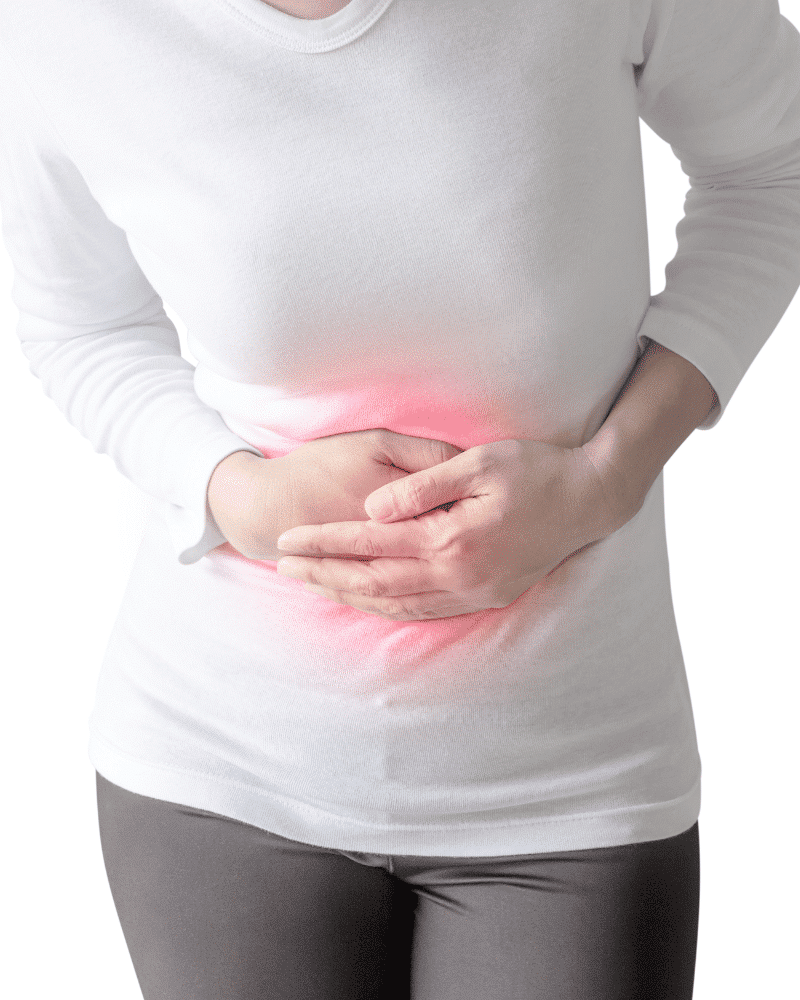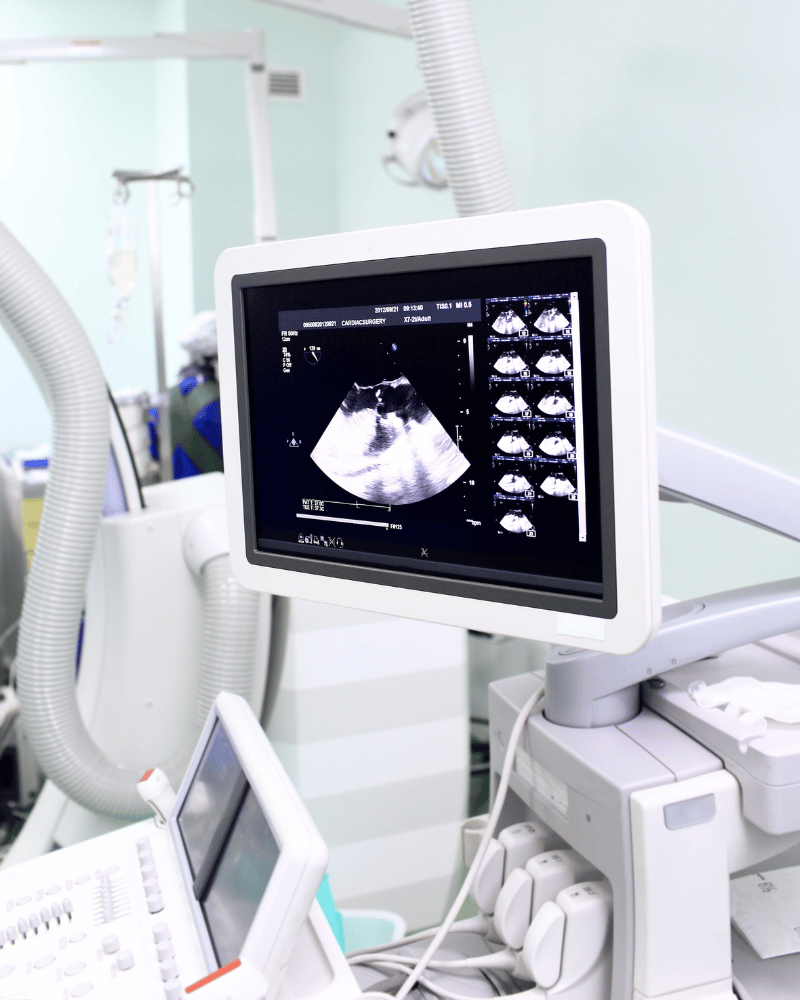4 weeks pregnant and breasts stopped hurting?
Congratulations on your pregnancy and how great that you’ve found out about your baby so soon! At 4 weeks pregnant you may be experiencing some of the very early symptoms, but what does it mean if they stop? Are you 4 weeks pregnant and breasts stopped hurting?
This blog includes:
- 4 weeks pregnant signs
- What happens to breasts in pregnancy?
- How to relieve sore breasts in pregnancy
- 4 weeks pregnant and breasts stopped hurting?
- What does a loss of pregnancy symptoms feel like?
- Common signs of a miscarriage at 4 weeks pregnant
- My breasts have stopped hurting – am I still pregnant?
Breast pain is one of the earliest signs of pregnancy, so experiencing this at 4 weeks pregnant is totally normal. Even if you are experiencing multiple signs of early pregnancy, it should be confirmed by a test. A pregnancy test is the only way you can be more confident that you are pregnant due to hormones.
Your pregnancy due date is worked out based on your last normal period before you became pregnant. If you’re trying for a baby, it’s a good idea to monitor your periods.
4 weeks pregnant signs
- Missed period
- Breast tenderness (may also feel swollen)
- Morning sickness
- Feeling more tired than usual
- Funny taste in mouth (often metallic)
- Spotting
- Cramping

Some pregnant women may experience a lot of 4 weeks pregnant symptoms while other women may experience very few. At 4 weeks pregnant, you’re still early in the process and may not experience symptoms until later in the first trimester.
Women start experiencing other pregnancy symptoms at different stages in pregnancy; try not to compare yours to theirs.
The pregnancy hormone ‘hCG’ is responsible for the beginning of pregnancy symptoms. This is the same hormone that is detected within urine when you complete a home pregnancy test.
Some pregnancy symptoms may not cause you any concern, but others can. If you experience cramping and spotting at 4 weeks pregnant, this could be due to implantation bleeding.
Implantation bleeding occurs when the fertilised egg implants itself into the uterine wall. Implantation bleeding may cause light spotting in the first trimester and this could be accompanied by morning sickness and sore boobs. If you’re 4 weeks pregnant and bleeding like a period then you should seek medical advice.
Similarly with cramps, if they get worse, you should seek help. It is always better to be on the safe side.
What happens to breasts in pregnancy?
During early pregnancy the body undergoes many changes, this is due to surging hormones. In early pregnancy, your body starts to produce more of the hormones oestrogen and progesterone. When this happens, you may have sore boobs at around 4 weeks pregnant.
The breast is made up of breast tissue. During pregnancy, the milk-producing glands and milk ducts grow, which allows the milk to travel. This causes breast growth and allows for breastfeeding when your baby is born.
These changes can make the boobs feel swollen which can lead to tender breasts. Later in your pregnancy, you may experience some milk leaking from your breasts, this is nothing to worry about.
You may also notice little bumps appearing around the nipples, this is the body preparing for milk production.
It is completely normal for breast growth to happen later in pregnancy. It can happen even after your baby is born, so don’t panic if you haven’t noticed your breasts growing yet.
During sex, you may notice other breast changes such as tingling in the nipples. The tingling sensation in the nipples comes from an increase in blood flow to the area.
If you do start to experience pains getting worse then chat with your healthcare provider. They will be able to give you accurate advice even after your baby has arrived.

How to relieve sore breasts in pregnancy
If you’re experiencing breast pain, you’re probably searching for ways to help.
- Wear supportive bras
- Get remeasured regularly as you notice your breasts increase in size
- Soak the breast or rub warm water on the breasts
Many women experience breast tenderness and it may disappear by the time you reach the second trimester. It can be tough to relieve tender breasts, but it might be worth trying out these methods.
4 weeks pregnant and breasts stopped hurting?
Pregnancy symptoms can often cause discomfort and sometimes even make you panic! Even when symptoms stop, we’re thinking ‘where has that pregnancy symptom gone?’
The truth is that pregnancy symptoms can come and go, try not to worry as this can be nothing serious. Breast tenderness is a symptom that can ease off as you enter the second trimester at 12 weeks. This is because your pregnancy hormones will start to level out.
At 4 weeks pregnant it can be scary when symptoms disappear, especially out of nowhere. If you feel concerned about your loss of pregnancy symptoms, always seek advice. A healthcare professional will ask about other symptoms and perform relevant tests to find out the cause.
What does a loss of pregnancy symptoms mean?
If you’ve found yourself no longer experiencing some pregnancy symptoms, it may not mean there’s a problem. Some of the main symptoms do get better or stop completely as you go through each pregnancy week.
Many women experience the loss of one symptom but still have others, this could just be the body changing. If you notice a sudden change and lose all signs of pregnancy, then it could be something more serious.
Unfortunately, one of the reasons loss of pregnancy symptoms can occur is due to a miscarriage. Miscarriages are most likely to occur within the first trimester. If you experience a miscarriage, it is very important to seek the support you need afterwards.
You should also remember that most miscarriages that happen in early pregnancy are due to the foetus’ chromosomes. This means that it is not your fault.

Common signs of a miscarriage 4 weeks pregnant
Bleeding
Vaginal bleeding can occur during a miscarriage, however this doesn’t mean that if you bleed it is definitely a miscarriage.
Bleeding in early pregnancy can be quite common therefore it’s important to monitor this sign. Light spotting is usually light pink or brown in colour, whereas bleeding is likely to be a brighter red colour. This should also be mentioned to your midwife so they can help to monitor it and rule out any complications.
If your bleeding gets much worse, is heavy and intermittent or you experience bleeding with other signs, get checked out. Having the relevant checks is the only way you can be sure what’s going on.
Sometimes miscarriages can cause women to pass blood clots. This needs to be mentioned to a healthcare professional. They may ask how long this has occurred for and for an estimation of the size of the clots.
Cramping
Mild cramping at 4 weeks pregnant could be implantation occurring, but if it gets worse, it could be a miscarriage. This pain is likely to occur lower in the belly and could be accompanied by vaginal bleeding or alone.
Cramping due to implantation usually lasts for around 1 to 3 days. The process should not cause intense pain, instead it may feel like a twinging feeling. Cramping could be a sign of implantation happening or your body stretching ready for baby growth.
Loss of pregnancy symptoms
A loss of one pregnancy symptom alone may not be a cause for concern. You could also do some research into when that symptom is likely to settle, this may give you peace of mind. If you notice all of your pregnancy symptoms disappearing, you may want to seek advice.
Symptoms that may disappear can include breast pain and nausea (morning sickness). If you experience a loss of these and heavy bleeding or cramping, it could be a sign of a miscarriage.
Ectopic pregnancy
An ectopic pregnancy can also cause a miscarriage. This type of pregnancy occurs when the egg implants itself away from the womb. This means the egg does not have space to grow as it should. This can cause ruptures which need to be dealt with quickly.
This usually occurs when the egg implants into one of the fallopian tubes. It is very important to seek medical advice urgently if you may be suffering with an ectopic pregnancy.
Some pregnant women don’t experience signs of an ectopic pregnancy, therefore they may only find out during a routine ultrasound scan.

My breasts have stopped hurting – am I still pregnant?
Depending on how many weeks pregnant you are, your symptoms can change. This means there can often be no reason to worry. You should keep your midwife updated with all pregnancy symptoms so that they can monitor you.
If you’re 4 weeks pregnant and the breasts have stopped hurting but you have other pregnancy symptoms, you may be fine. If you keep track of your symptoms and keep the midwife updated, you are doing the right thing.
If your symptoms get much worse or disappear altogether, you should seek advice. These changes might not mean anything but it’s better to be sure and promote a healthy pregnancy. Tests can be performed to give you an accurate answer.
Hey there, I’m Abigail!
In 2022, I graduated with a First Class Degree in Marketing and since then, I have been working as a blogger and Marketing Assistant. Before heading to university, I also achieved a BTEC in Children’s Play, Learning and Development.
I have been blogging for over four years and have covered many topics during this time. My focus has been on pregnancy, babies, sleep and baby name ideas.
I am passionate about learning new things and helping others. I hope that you find my blogs useful and informative. See you in the next article!


















